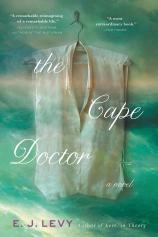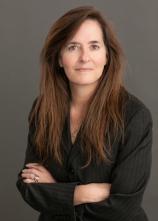Reading Group Guide
Discussion Questions
The Cape Doctor

1. Set amidst the dazzling coast and rugged mountains around Cape Town in the 1810s and 1820s, on the lush island of Mauritius, in glittering Georgian London, and in sodden Edinburgh (when it was an international intellectual hub, “the seat of Scottish genius”), the novel reflects the itinerant life of an army surgeon and colonial officers of the time. How does setting affect Jonathan’s development as a student, surgeon and dandy in the first decades of the 19th century? Do the different settings reflect different emotional states?
2. When Margaret is born in Cork, Ireland, in 1795, the rights of women and Catholics (like her family) are severely limited by the state and by common law. In the novel (as in life), Margaret takes on the identity of a young man in 1809 in order to enter Edinburgh’s famed medical school, from which women were excluded. What lessons does she need to learn before she can successfully live as a young man? What are some of the crucial steps she takes to master her “role” and live as Jonathan? Does clothing make the man, or is more required? Has such performance of gender ever applied in your life? How so?
3. Education plays a major role in the novel --- not only the study of literature and practical medical training, but also social education, including learning gender. Do the rewards and risks of education differ for girls and boys, for men and women? How are they similar? How do they differ? Are such differences a thing of the past, or do they still apply?
4. Throughout the novel, the rights of women in the early 19th century --- their unequal access to education, to employment, to the fruits of their labor, to the vote, and to political power --- is a topic of discussion. Queen Elizabeth I is noted as an exception to the rule, having been a woman more powerful than men 250 years earlier: “She was a son in daughter’s clothing” (p.164). Why was Queen Elizabeth an exception? What circumstances and choices liberated her from the usual constrains of her sex in the 16th century? Why could she get away with things other women could not? By foregrounding Queen Elizabeth, what point might Dr. Perry and the novel be making about the nature of sex, gender, class, coverture and power?
5. In the course of the story, Dr. Perry achieves remarkable things --- rising from obscure origins to become one of the most renowned surgeons of the day (the first to have performed a successful Caesarian in Africa) --- but the doctor also suffers many losses, financial and personal. While a student, Jonathan Perry claims that “knowledge is the only lasting treasure” (125-126). Do you think this is true? What, if anything, might be more lasting than knowledge? How do you think this view affects his choices?
6. Once he arrives in the Cape colony in 1816, Dr. Perry becomes an avid collector of native plants, in search of medicinal uses; he is eager to learn the names of plants from local people, but he recognizes there are risks that attend naming --- whether categorizing plants, animals, places or people (166-167). What power do names have in the book? How accurately do people’s names reflect their true identities in the novel? Are names a disguise here, or do they tell a deeper truth of these lives?
7. Late in the novel, Dr. Perry says of a friend’s marriage, “I hoped they would be happy. Together. I hoped then they might have a child. Love each other well. What could possibly matter more than that?” (325). Given all that Dr. Perry achieved, given Perry’s own sacrifices, do you think this observation is accurate or ironic? Is love what matters most, the measure of a life? Do you think Dr. Perry made the right choice?
8. Throughout much of the novel, Jonathan Perry believes he is lying to everyone but himself. However, at the end of the story, Georgiana confronts him and claims in anger that he is the biggest fraud of them all and has lied to himself the most. Do you agree or disagree? Why or why not? Discuss.
The Cape Doctor
- Publication Date: August 2, 2022
- Genres: Fiction, Historical Fiction
- Paperback: 352 pages
- Publisher: Back Bay Books
- ISBN-10: 0316536598
- ISBN-13: 9780316536592







